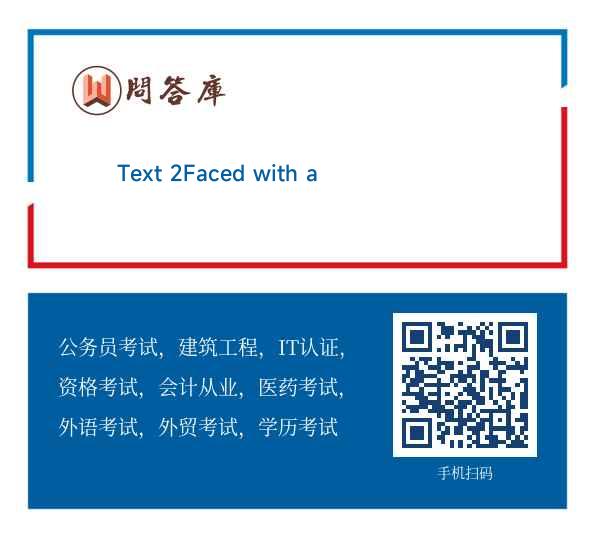Text 2Faced with a mission-critical decision
问题详情
Text 2
Faced with a mission-critical decision, who would you turn to for advice? Someone you had great confidence in, surely. But several lines of research show that our instincts about where to turn to for counsel are often not completely correct.
My research looks at prejudices that affect how people use advice, including why they often blindly follow recommendations from people who-as far as they know-are as knowledgeable as they are. In studies I conducted with Don Moore of Carnegie Mellon University, for example, I found that people tend to overvalue advice when the problem they"re addressing is hard and to undervalue it when the problem is easy.
In our experiments, subjects were asked to guess the weight of people in various pictures,some of which were in focus and some of which were unclear. For each picture, subjects guessed twice: the first time without advice and the second time with input from another participant. When the pictures were in focus, we found, subjects tended to discount the advice; apparently, they were confident in their ability to guess correctly. When the pictures were unclear, subjects leaned heavily on the advice of others and seemed less secure about their initial opinion. Because they misjudged the value of the advice they received-consistently overvaluing or undervaluing it depending on the difficulty of the problem-our subjects did not make the best guesses overall. They would have done better if they"d considered the advice equally,and to a moderate degree, on both hard and easy tasks.
Another advice-related prejudice I"ve found compels people to overvalue advice that they pay for. In one study I conducted, subjects answered different sets of questions about American histo-ry. Before answering some of the questions, they could get advice on the correct answer from an-other subject whom they knew was no more expert than they were. In one version of the experi-ment, people could get advice for free, while in another version, they paid for it. When they paid for advice, people tended to have firm belief in it, I suspect, by a combination of sunk-cost preju- dice and the nearly instinctual belief that cost and quality are linked.
51.1n the face of a mission-critical decision, people tend to _________
[ A] trust their own efforts
[ B ] rely on research findings
[ C] get affected by other"s opinion
[D] seek help from the more know ledgable请帮忙给出正确答案和分析,谢谢!
参考答案
正确答案:C
Text2参考译文当面临重大决定时,你会向谁求助呢?当然是你最信任的人!但是多项研究表明我们向别人求助的本能经常不是完全正确的。我的研究旨在观察影响人们对待建议的态度的偏见,包括他们为什么会执着于和他们自身见识一样的人的建议。我于卡内基麦隆大学的顿摩尔共同进行的研究表明,当人们处理的问题棘手时,他们倾向于过于重视他人意见,反之则轻视他人意见。在试验中,我们要求调查对象猜测几幅画中人物的体重,有些画清晰,有的不清晰。对每幅画,他们都有两次猜的机会,第一次没有别人的建议,而第二次则可以依据另一个参于者的信息。我们发现,当图像清晰的时候,他们倾向于排斥他人的意见,相信自己正确判断的能力。而当图像模糊的时候,他们则过于依赖他人的建议,对于自己原先的判断则不确定。由于他们对于所接受的建议的价值一直都没有做出正确的判断,一直都是高估或低估,所以他们整体上没有做出最佳的猜测。如果他们在一定程度上平等考虑所有的建议,他们的表现可能好很多。我发现另一个与建议有关的倾向性会强迫人们高估他们付费的建议。我开展的一个研究中,调查对象回答了几组关于美国历史的问题。回答一些问题之前,他们可以从另外一个调查对象那里得到一个正确答案的建议,他明白这个调查对象知道的和他一样多。在一次试验中,他们无偿得到建议。而在另一个实验中却要付费。付费时,人们倾向于坚信这个建议。我怀疑,这是由于沉没成本偏见以及近乎本能的一种信念,即代价与质量相关。51.C【精析】细节题。从文章第一段第二句话“Someoneyouhadgreatconfidencein,surely!”得知,人们总是受到他人影响。故选C。
